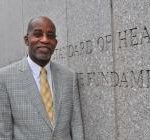 When Jennifer Bui, a resident of the low-income San Diego neighborhood of City Heights, turned 18, she started concentrating on her financial future.
When Jennifer Bui, a resident of the low-income San Diego neighborhood of City Heights, turned 18, she started concentrating on her financial future.
“I was really interested in building my credit and building my financial power, in a way,” said Bui, now 19 and studying engineering and physics at Brown University in Rhode Island.
After watching her mother struggle with debt, she was determined take control of her finances. “It’s so heartbreaking to see my mom paying all of this interest,” Bui said. Her mother opened department store credit cards, but didn’t understand that the high interest rate accrues on the entire amount, if not paid in full. Occasionally she also forgot the due date, and got hit with late fees.
“It definitely stresses her out. She worries about it all the time, like how to pay them off,” Bui said.
Bui was leery of opening a credit card account, in part because of her mother’s experience. Then she learned of a new credit union in City Heights — a rare offering in an area with far more payday lenders, pawn shops and check-cashing outlets than bank branches.
It’s called Self-Help Federal Credit Union, and it opened in April 2017, largely through a $3 million loan and with $400,000 in grants from the California Endowment, the state’s largest health foundation…
To read the rest of the column, visit its original posting site at the Center for Health Journalism.

